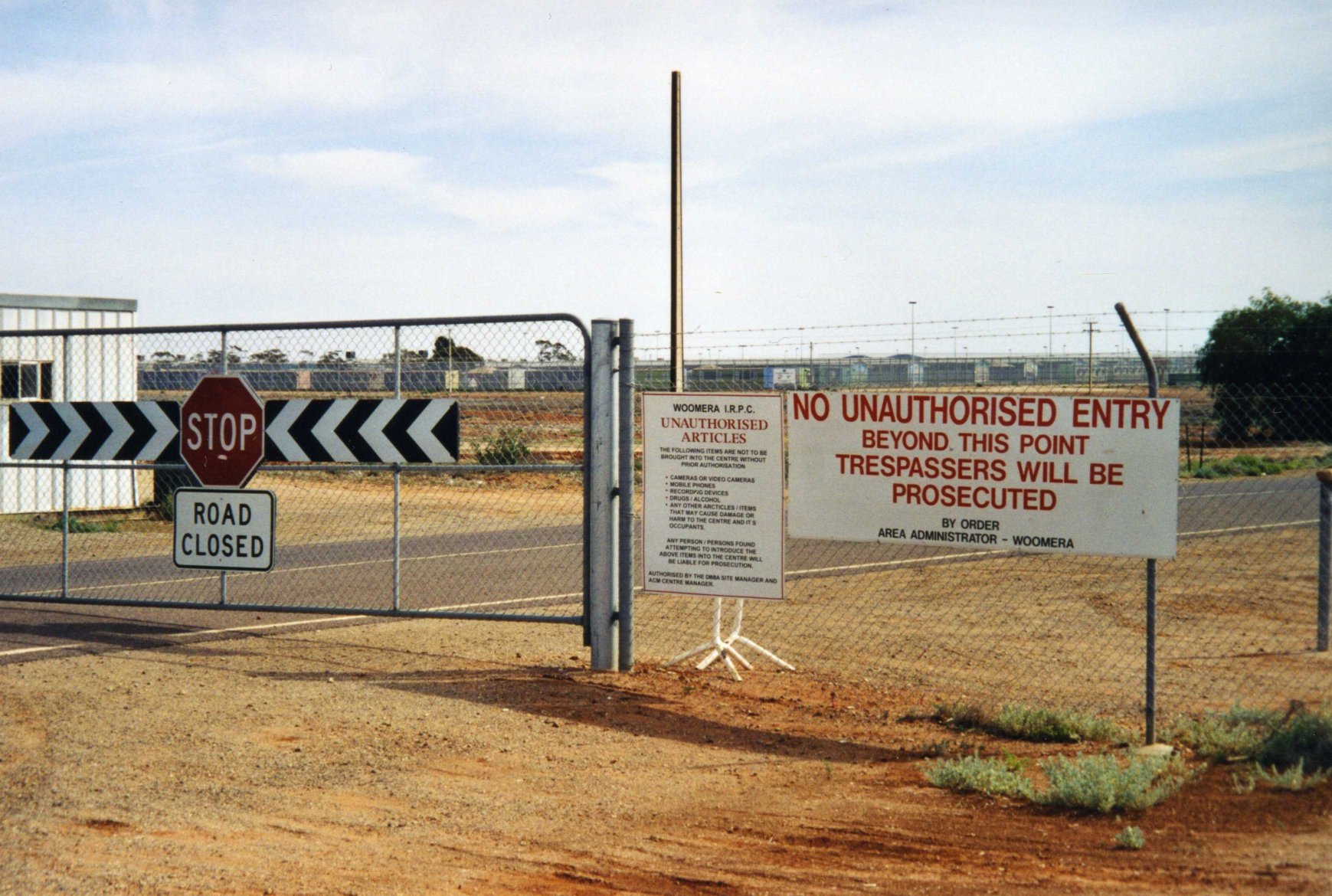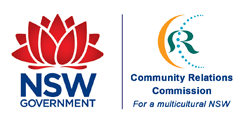Contributed by Dr Rosemary Suliman, College of Arts, Education and Social Sciences School of Humanities and Languages Bankstown Campus, University of Western Sydney. This story is based on an interview with a UWS student. The names have been changed, for confidentiality.
What can we do? Where can we go?
Place of Birth: Iraq
Cultural background: Iraqi

Live or die together
Sarra was born in Iraq. When the second Gulf War broke out, she and her family fled to Australia by way of Jordan and Indonesia. They spent eleven months in Woomera detention centre before moving to Sydney. Sarah is currently in her third year of tertiary studies at the University of Western Sydney.
I was always the best
Sarra was born in Baghdad, the eldest of four children. She enjoyed her early education, at which she excelled.
In my country, I was one of the best students in my year.
I was very clever, she says, though you wonder if her use of the past tense suggests more about her early life, or the distance from which she is forced to recall it.
I was still young.
Or perhaps this distance is partly an effect of the discrimination she was subjected to as part of her primary education.
The only negative thing I can remember is that in religion classes I was asked to either become Muslim or get out of class. I was in year 4. My father had to come to school and ask that I just sit in class instead of sitting outside in the cold.
If you drink from a glass, they have to break it, they cannot drink from the same glass again.
The attitude was, ‘ you become like us or we do not want you’.
Nevertheless, Sarra is careful to acknowledge the institutional, rather than personal nature of this discrimination.
We as children played together and respected each other.
Otherwise, she does not go into detail about her childhood in Iraq.
It was ok, she says.
But on the conditions of her leaving, she is clear.
It was not safe for me or my family.
One of the reason we left, she says, was fear of being attacked and raped by Muslims.
We were also looking for a better life and education and future.
There was no future there.
When the second Gulf War came, Sarra and her family traveled to Jordan.
Could not go back to Iraq when our visa expired.
My father had a very high position in the Iraqi army in Iraq. [He] would be killed if we go back.
We had to leave very quickly.
What can we do, where can we go?
Sarra and her family managed to get to Indonesia. Conditions did not improve.
In Indonesia we had a very bad time. We were caught by Police and forced into a plane to go back to Iraq.
My mother pleaded. She went crazy and shouted and screamed and hit the police. She had four children and to go back to Iraq meant death…
My mother hit the police and pleaded. The Police picked us kids and threw us on the plane.
Finally the Pilot came and spoke to us and said we can go back to Indonesia instead of Iraq. We took our passports and went back to Indonesia where we stayed for 40 days.
What can we do?
Where can we go?
Boats?
They said we could be eaten by sharks.
We thought maybe my father should go first [but] we decided
to go together.
Live or die together.
My father had to pay a lot of money to get into the boat.
The trip was something you cannot forget.
The boat was very scary, very crowded, very hot.
If I am paid billions of dollars,
I would not go through it again.
It is like a desert…
When they arrived in Australia, Sarra and her family were held at Woomera Immigration Reception and Processing Centre.
In Australia, we stayed in a refugee camp for eleven months… Woomera is the name of the place.
Woomera was originally intended to hold four hundred people. When Sarra and her family arrived there, it housed nearly fifteen hundred detainees. To Sarra, it seemed like many more.
There were thousands of people in the camp, she says. There were so many.
But despite the overcrowding, Sarra’s sense of isolation in the remote institution was profound.
It was a deserted place.
It was like a desert.
There was no TV, no radio. No contact with the outside world. We just walked around.
We were fenced.
The kangaroos were free outside the fence, but we were locked inside.
My grandparents thought
We were dead
Because
They lost contact with us.
After seven months, they allowed us to make contact with out relatives,
to let them know
we are still alive.
We called my uncle
because
his number was the only one
we could remember.
Conditions inside the facility were notoriously harsh.
They saw us as prisoners, Sarra says.
Medical treatment was not easily provided.
If you are very ill and you go to the clinic, all they say is “drink water”. It does not matter what your problem is. You had to drink water.
Educational opportunities inside the detention centre were minimal.
They tried to teach us, she says, but they did not provide proper teachers.
But Sarra found ways to continue her education, even in the most trying circumstances.
There was a small library with some books, she remembers.
And she found ways to remain positive, too, through her bond with her family, and those around her.
We made friends with people in the camp. We are still good friends with them.
In the evenings, we sat around. We did not have games. We played our traditional games and talked.
The food was good, she says. They gave us three meals and fruits. Dessert.
The office tried to make it as easy as possible for us.
But, she says, we were still looked at as prisoners.
It was like a desert.
To get out, we could not do anything.
I did not like it there, she says.
After eleven months, Sarra and her family were granted visas.
A house on the Beach !
They spent a listless month in Adelaide but, feeling isolated and purposeless, they soon moved on.
Our friends from the camp came to Sydney and we followed them there.
It was better for us to study and my father had to get a job.
But for Sarra’s father, finding a job was difficult. Despite his engineering degree, he could not get work. Nevertheless, the friends Sarra’s family had made during their time in detention proved invaluable in making the transition from life in detention to life outside. For two months, Sarra and her family slept in their friends’ homes while her father looked for work.
Then, following what must have seemed to them the strangest of logic, the same government that had kept Sarra and her family in detention now ushered them into a stereotypically Australian home.
They gave us a house on the beach!!
I would have gone to a better school
Sarah’s refugee experience had a significant impact on her education.
I missed a lot of schooling for eleven months in the camp.
Despite her best efforts, her scholastic endeavours were also limited outside the detention centre. She feels a profound sense of loss about the education she might have received had she been more aware of her surroundings.
I tried very hard to study here. Unfortunately, the school I went to was disadvantaged because of the area.
I was new in Australia, the first in my family to do the HSC here and I did not know, I was not aware.
The first in her family to be educated in their adoptive country, and already in her third year at the university, Sarra nevertheless refuses to be satisfied with her accomplishments. She thinks about what might have been.
I would go to a better school, she says, work harder.
She is determined that her siblings will benefit from her experiences.
My sister was already in year twelve by the time I realized this. It was too late for her. But my younger sister will definitely… be able to do better, to have a better opportunity to go to university.
The most fun time !
Despite the immense difficulties she had faced, and the fact that she had been denied the opportunity to attend any scholastic institution in Jordan, Indonesia, or Woomera, Sarra completed an intensive English course pushed herself to succeed at her tertiary studies, which she has found particularly rewarding.
I found UWS to be fantastic. I had the most fun time at UWS for three and a half years. I made good friendships with colleagues and lecturers. All the lecturers treated us well, as equals. They were helpful whenever we needed help, very supportive.
And she found a sense of support and community, too, in studying alongside others who had undergone similar journeys.
UWS is very good because a lot of people come from Iraq and other countries and they understand each other.
We are all going through difficulties and we have the same aims and goals: we are trying to achieve the best.
We had such a hard time in the past, we want to make it good for our kids and set good examples for our kids.
Now, Sarra’s ambition is directed towards helping others to make the most of the educational opportunities that she so values.
I want to do primary teaching.
I want to become something, I want to do something
Sarra’s ambition is deep and abiding.
I want to become something, she says, as though her struggles and her successes have not made her something already.
She wants a career that will allow her to help others who are going through what she has gone through. She is studying languages.
I want to be an interpreter, she says, a teacher.
She identifies her family as her role models.
My mum and dad, she says.
All my aunties and uncles from both my dad’s and my mother’s sides have degrees. My father has a degree. My mother is an accountant. She worked hard.
And it is in their eyes that she most wants to see the reflection of her own success.
I am the eldest. I want to prove to everyone that I can be something good. I want to prove to my family first, my uncles and aunties overseas, because they love me very much, and they wanted me to be something good… I want to show them that I can really do it.
And she is determined to succeed.
Although
I am in a strange country, and
I haven’t been long here,
still, she says,
I can do it.
When I see where we were and what we have been through… achieved… I am a very happy person.
Read other Success Stories of Refugee students at The University of Western Sydney

